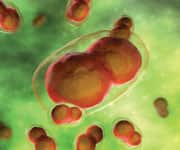Life Extension Magazine®

The bacteria-killing effects of penicillin were published in the British Journal of Experimental Pathology in 1929.1
The public did not gain access to penicillin until 1945.2,3 Millions of Americans died during the 16-year delay in making penicillin widely available.4-6
The same scenario is happening today. Effective ways to counteract aging have been discovered, but are overlooked by the medical mainstream.
Example of Lethal Delay
- Alexander Fleming identified antibiotic properties of penicillin in 1928.17,18
- British Journal of Experimental Pathology published findings in 1929.
- Penicillin not widely available until 1945.2,3
- Delay caused millions of deaths.
Halt Neurodegeneration

Medical textbooks describe Alzheimer’s disease as progressive mental deterioration that is irreversible.7
This concept was turned upside down in 2014 as published human research showed progression of Alzheimer’s dementia can be partially reversed.8,9 The challenge, as described in this landmark 2014 study, is that strict adherence to dietary changes is required.
A more practical approach for normal aging people involves two low-cost compounds that have been shown to halt Alzheimer’s progression. They work by protecting against the structural changes that occur in brain cells as we age.
In one study, 54% of Alzheimer’s patients given an extract from mother’s milk showed an average 25% improvement in mental test scores. The Alzheimer’s patients in the placebo arm of the study suffered a worsening of their neurologic status.10
Another study found no progression of symptoms in Alzheimer’s patients taking microdose lithium.11
400-Year Delay in Curing Scurvy
 |
- 1497: Citrus shown to cure scurvy
- 1747: Dr. Lind proves citrus cures scurvy
- 1799: British mandate sailors ingest citrus
- 1870: Citrus cure officially discredited
- 1932: Vitamin C proven to cure scurvy
Many Deaths After Scurvy Cure Discovered
Protection Against Cellular Aging
Microdose lithium is a potential breakthrough in the control of Alzheimer’s. The mechanism by which it functions may represent a new paradigm in the prevention of brain cell aging in healthy individuals.
Lithium is a GSK-3 inhibitor.12,13 Based on a growing body of evidence, compounds that inhibit the GSK-3 enzyme may soon become as well-known as antioxidants.14-16
Unlike victims of bacterial infections who had no access to penicillin at any price, the cost of lithium is remarkably low.
Delays in Eradicating Smallpox
 |
- 1796: Dr. Edward Jenner demonstrates cowpox vaccine efficacy
- 1797: Jenner’s work rejected by Royal Society
- 1798: Jenner self-publishes findings of cowpox vaccine efficacy
- 1802: Parliament awards Dr. Jenner grant to expand his research
- 1837: Start of smallpox epidemic killing 42,000 British
- 1853: Cowpox vaccine made mandatory in England (children)
- 1857: Start of smallpox epidemic killing 14,000 British
- 1863: Another smallpox epidemic claims 20,000 British lives
- 1872: Smallpox epidemic sweeps England killing 44,000 people
- 1901: Last smallpox epidemic in British Isles kills 2,700 people
Huge Numbers of Needless Deaths
George C. Kohn, Encyclopedia of Plague and Pestilence: From Ancient Times to the Present; Infobase Publishing, 2007
Accelerated Development of Age-Delaying Compounds

The first article in this issue describes how lithium and a mother’s milk extract protect against the structure damage observed in Alzheimer’s patients.
These findings may seem at first to be of interest to those with dementia. The take-home lesson is that consumers can apply this novel protection against brain aging before cognitive impairment and degenerative changes manifest.
This year’s Collector’s Edition provides valuable insights into published findings that are often overlooked by conventional medicine.
References
- Fleming A. On the Antibacterial Action of Cultures of a Penicillium, with Special Reference to their Use in the Isolation of B. influenzæ. Bri J Exp Pathol. 1929;10(3):226-36.
- Available at: http://www.ox.ac.uk/news/science-blog/75-years-penicillin-people#. Accessed July 28, 2016.
- Available at: http://www.rsc.org/chemistryworld/node/3280. Accessed July 28, 2016.
- Available at: https://www.cdc.gov/nchs/data/dvs/lead1900_98.pdf. Accessed July 28, 2016.
- Fair RJ, Tor Y. Antibiotics and Bacterial Resistance in the 21st Century. Perspec Medicin Chem. 2014;6:25-64.
- Guyer B, Freedman MA, Strobino DM, et al. Annual summary of vital statistics: trends in the health of Americans during the 20th century. Pediatrics. 2000;106(6):1307-17.
- Available at: http://www.ncbi.nlm.nih.gov/pubmed. Accessed July 28, 2016.
- Bredesen DE. Reversal of cognitive decline: a novel therapeutic program. Aging (Albany NY). 2014;6(9):707-17.
- Bredesen DE, Amos EC, Canick J, et al. Reversal of cognitive decline in Alzheimer’s disease. Aging (Albany NY). 2016;8(6):1250-8.
- Leszek J, Inglot AD, Janusz M, et al. Colostrinin: a proline-rich polypeptide (PRP) complex isolated from ovine colostrum for treatment of Alzheimer’s disease. A double-blind, placebo-controlled study. Arch Immunol Ther Exp (Warsz). 1999;47(6):377-85.
- Nunes MA, Viel TA, Buck HS. Microdose lithium treatment stabilized cognitive impairment in patients with Alzheimer’s disease. Curr Alzheimer Res. 2013;10(1):104-7.
- Orellana AMM, Vasconcelos AR, Leite JA, et al. Age-related neuroinflammation and changes in AKT-GSK-3 and WNT/ -CATENIN signaling in rat hippocampus. Aging (Albany NY). 2015;7(12):1094-108.
- Freland L, Beaulieu JM. Inhibition of GSK3 by lithium, from single molecules to signaling networks. Front Mol Neurosci. 2012;5:14.
- Jope RS. Lithium and GSK-3: one inhibitor, two inhibitory actions, multiple outcomes. Trends Pharmacol Sci. 2003;24(9):441-3.
- Zhou J, Force T. Focusing the spotlight on GSK-3 in aging. Aging (Albany NY). 2013;5(6):388-9.
- Eldar-Finkelman H, Martinez A. GSK-3 Inhibitors: Preclinical and Clinical Focus on CNS. Front Mol Neurosci. 2011;4:32.
- Ougolkov AV, Billadeau DD. Inhibition of glycogen synthase kinase-3. Methods Mol Biol. 2008;468:67-75.
- Ligon BL. Penicillin: its discovery and early development. Semin Pediatr Infect Dis. 2004;15(1):52-7.
- Diggins FW. The discovery of penicillin: so many get it wrong. Biologist (London). 2000;47(3):115-9.
- Tan SY, Tatsumura Y. Alexander Fleming (1881–1955): Discoverer of penicillin. Singapore Med J. 2015;56(7):366-7.
- Available at: http://www.gutenberg.us/article/whebn0000023312/penicillin. Accessed July 28, 2016.
- Available at: https://www.acs.org/content/acs/en/education/whatischemistry/landmarks/flemingpenicillin.html. Accessed July 28, 2016.

